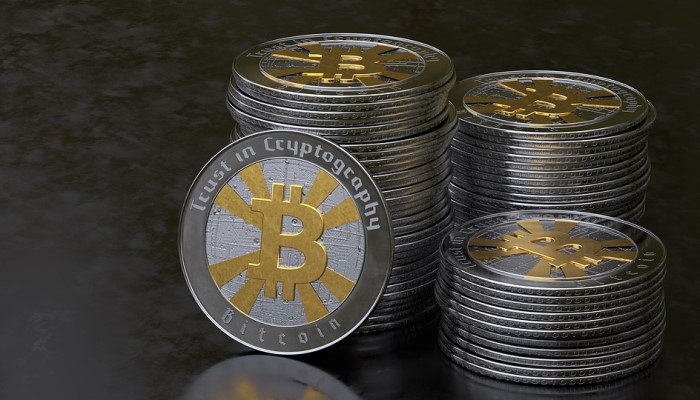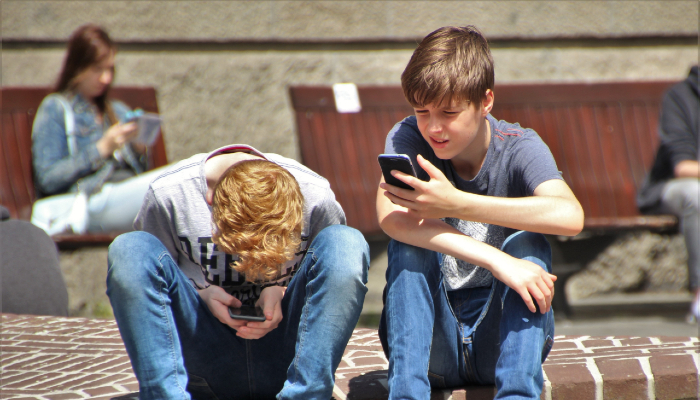Digital citizenship
Where can I find information about digital citizenship?
(Years 7-10)

Image: Digitální hygiena počítače by Marketingjpik on Wikimedia Commons. CC BY 4.0. Image cropped.
Entry last updated: 27/02/26
Introduction
Digital citizenship is about the way people use the internet (eg social media) and technology. It is also about how they behave online. It includes:
- having digital skills and knowing how to use technology
- thinking critically about what you find online
- keeping yourself and your personal information safe, and
- treating others with respect.
Digital citizenship terms
Here are some words or phrases you may come across when learning about digital citizenship. You can also use them as keywords when looking for information.
ICT (Information and Communication Technology): technologies that are used for information and communication, like mobile phones, social media, computers, radio and lots more.
Digital footprint: data you leave behind when using the internet, like social media posts and website visits.
Online privacy: protection of personal information while on the internet.
Personal information: data that can identify a specific person. It can be a name, phone number, age, email or home address etc.
Digital etiquette: rules for polite online communication and behaviour.
Copyright: a set of rights that someone (or an organisation) has over something they have created, like music, movies, books and artworks.
Digital wellbeing: the impact of technology on people's mental, physical, social, and emotional health.
Cyberbullying: using digital technology to hurt, harass, embarrass or threaten another person.
Media literacy: the ability to critically think about media stories to judge if they are accurate or reliable.
Misinformation: false information is spread when the sharer doesn't know it's wrong.
Disinformation: false information is spread on purpose to mislead people.
Bias: pre-set beliefs about things, people, or ideas that can make us see them in a way that's unfair or unreasonable.
Clickbait: headlines or posts that are made to grab attention and get 'clicks'. They may not actually say what the article or video is about.
General websites
These websites have good explanations for different digital citizenship topics.
Middle School (Gale In Context)
This is one of the EPIC databases. EPIC is a collection of reliable databases covering lots of different topics. It’s put together especially for New Zealand school students and has articles, images and videos to answer questions like this.
Go to Browse Topics.
Look for the topic Digital Citizenship and selectRead more to read the full overview.
Or choose the topic Digital Media and look at the Reference articles about Online Search Strategies, Accuracy in Digital Media, and Ethical Use of Information.
Other topics to check out are Fake News and Misinformation, Media Literacy, and Social Media.
Tips: To use the EPIC resources, you need a password from your school librarian. Or chat with one of our AnyQuestions librarians. Some EPIC databases may also be available through your public library.
This is an online learning website for students in the UK. Although videos won't work in New Zealand, it has lots of good articles and courses about digital citizenship topics.
Search for 'ICT' and choose the KS3 ICT course. This course is all about managing information on computers, searching for information, risks of ICT, eSafety, copyright and more.
This site also has useful information about topics like fake news.
Select the Trending tab and go down to find the link called Other Side of the Story. This page has information about scams, fake news and AI.
Select Learn about fake news to find lots of articles about fake news, misinformation, clickbait, bias, and how algorithms and filter bubbles decide what we see on social media.
Snopes is a source for researching urban legends, folklore, myths, rumours, and misinformation. They are a member of the IFCN (International Fact Checking Network). There is sometimes more of a US focus.
Use keywords related to what you want to fact check in the Search Snopes... box.
Or you can use the tabs at the top to explore.
Fact Checks has the most recently researched claims.
Tips: Before searching it can be useful to come up with a list of words to use. These are sometimes called keywords. They can be the name of a person, place, or event you are researching.
This US-based site aims to show the bias inherent in news reporting as well as fact-checking. It brings together news sources from across the political spectrum.
Look at the top menu and select Facts and Fact checking.
Go down the page to find perspectives, how the same words can mean different things, and examples of fact checking from lots of different media organisations.
Tips: Stories can be told in different ways. It’s a good idea to look at multiple information sources about a topic to help you put together your own narrative.
New Zealand sites
These websites have Aotearoa New Zealand information about different digital citizenship topics.
Netsafe is an online safety organisation. It supports and advises parents, schools and young people on how to be safe online while making use of the internet.
Go to Advice & Support and Children & young people.
Look down the page for links about Cyberbullying and Digital Footprints.
Or go to Issues & Topics.
Choose Social media safety for guides about staying safe online.
Tips: Websites that have .org or .net in the address can have good information, but you need to assess how reliable it is. Check the About us link on the website. This site is supported by the Ministry for Education and the Ministry for Justice, so the information should be reliable.
This is the youth section for a New Zealand Government website. It has been put together to help rangatahi be safe online.
Look down the page and choose a topic to find out more.
For example, choose Spam and scams to learn about phishing.
Online gaming has information about staying safe while gaming.
Tips: We like sites like this because they’re reliable. You can tell because of their web address – they have either .govt or .ac, meaning they are from government or educational organisations. They’re also New Zealand sites, so relevant for us.
This is New Zealand's public radio service on news, current affairs, Pacific, Te Ao Māori, sport, business including opinions and analysis. It has articles, videos, podcasts, audio and more. It can be used to fact check claims made online.
Use keywords to search for the topic you want to know about.
Or look down the front page for current stories.
Tips: It’s worth checking out what the other major news sites have on a topic too. Some examples are Reuters (global), BBC (UK), ABC News (Australia) and our own 1News.
Videos
These websites have videos that are specifically for students. They cover digital citizenship, fact-checking, website evaluation, and more.
This website comes from a United States broadcaster. It has lots of educational videos and media. Grade 6 in the USA is like Year 7 in New Zealand.
Choose a grade level, e.g. 6-8 or 9-12 (you can always change it later).
Search for 'media literacy' to find the videos Media Literacy | Compact Civics and News Literacy | Social Studies Shorts.
You can also Filter by Resource Type to find the Collection Be MediaWise—Lessons to Teach Media Literacy.
This has videos about fact-checking, evaluating sources, responsible use of AI and more.
Or search for 'digital citizenship'.
Watch Digital Citizenship | Things Explained to find out about being a good digital citizen.
This is an educational show for high school and university level students. Each video includes sources for where the information came from.
Look through the courses for ones related to digital citizenship.
Navigating digital information has information about knowing who to trust, lateral reading, click restraint and more.
Or choose Media literacy for information about online influence, online advertising, and other topics.
Tips: YouTube lets people comment on videos so you might come across different opinions. Keep in mind these are opinions and any claims will need to be fact checked from reliable sources.
Common Sense Education - YouTube
This is the YouTube channel for Common Sense Education, an organisation that helps teachers prepare students to make smart choices online. Grade 6 in the USA is like Year 7 in New Zealand.
Go to Playlists.
Look for playlists to choose a video to watch.
For example, Grades 6-8 and 9-12 Carpool Conversations are from podcasts where adults and kids have discussions about digital literacy and well-being.
Tips: You will find a huge selection of videos on YouTube. We recommend you view videos from reliable sources like National Geographic, History Channel, BBC etc.
Games
These games have been designed for students. They are about being good digital citizens, how to be safe online, and how to spot misinformation and disinformation.
A game from New Zealand's Netsafe. It is designed to help 12-16 year olds recognise risky or harmful content. It covers misinformation, identity-based harm, and online extremism.
Select one of the topics to get started.
Interland - Be Internet Awesome
A game that comes from Google and other organisations. It is designed to teach young people how to be safe online in a fun way.
Select Let's Do This! to find the kingdoms.
Choose a kingdom and select Play to get started.
This game was put together by Tilt and others like Cambridge University. It has you become a fake news tycoon to see how many followers you can get.
Select Start to begin playing the game.
This game is also from Tilt. It gets you to use disinformation to stop a cat park being built in a city.
Choose Play to start the game.
Books
Check out some of these books, or ask at your local school or public for other book recommendations.
Social media survival guide by Holly Bathie
How to connect, share & play safely online : a manga guide for preteens, teens and parents by Narumi Sasaki
Using mobile devices by Katie Clark
12 questions about online identity and privacy by Marysa Storm
Clicks : be your best self online by Natasha Devon
The teenage guide to digital wellbeing : find the balance to live your best life by Tanya Goodin.
SCIS no: 1934883


